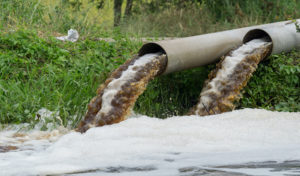
President Trump declares emergency at southern border, Supreme Court to review census citizenship question, and more…
IN THE NEWS
- After President Donald J. Trump declared a national emergency at the U.S.–Mexico border using the National Emergencies Act, 16 states filed a lawsuit challenging the President’s actions as “unconstitutional and unlawful.” The lawsuit asked the U.S. District Court for the Northern District of California to prevent the President from redirecting federal funds allocated to state-level drug enforcement and military construction projects towards constructing a border wall. Acting Secretary of Defense Patrick M. Shanahan reportedly stated that the Administration was “following the law,” “using the rules,” and “not bending the rules.”
- The U.S. Supreme Court agreed to directly review a federal district court’s finding—without an appeal to a federal circuit court—that the federal government illegally placed a citizenship question on the 2020 census. The U.S. District Court for the Southern District of New York had earlier ruled that the question, whose challengers called it an attempt to “undermine immigrant communities,” violated the Administrative Procedure Act. Oral arguments are scheduled for mid-April.
- The Supreme Court ruled that the prohibition against “excessive fines” in the Eighth Amendment of the U.S. Constitution applies to the states. Because of the Amendment’s ban on excessive fines, Justice Ruth Bader Ginsburg ruled that Indiana’s use of a practice called civil forfeiture to confiscate property worth several times the maximum fine for an offense was an unconstitutionally severe punishment. Amy Howe of SCOTUSblog noted that the ruling was a “blow to state and local governments,” which use civil forfeiture as an “important source of funds.”
- The Supreme Court also agreed to review whether indirect water pollution violates the Clean Water Act. Currently, the federal circuits differ in their interpretations of the Act’s “navigable waters” language. The Sixth Circuit has held that that the Act does not apply to pollution that indirectly happens to reach navigable waters, but the Ninth Circuit has found that such pollution—“fairly traceable from the point source to a navigable water”—does violate the statute.
- In addition to declaring a national emergency at the southern border, President Trump announced the continuation of two existing national emergencies with respect to Libya and Cuba. The President renewed both the Libyan emergency—in place since February 2011—and the Cuban emergency—originally declared in 1996—to protect against threats to “national security and foreign policy of the United States.” The National Emergencies Act requires such announcements to prevent an emergency from ending automatically on its anniversary date.
- President Trump announced that he would nominate Jeffrey A. Rosen as Deputy Attorney General, replacing the departing Rod J. Rosenstein. Rosen currently serves in the U.S. Department of Transportation and reportedly has taken broad deregulatory actions during his career, consistently opposing environmental regulations both at the Transportation Department and in his previous work at the White House Office of Management and Budget.
- Connecticut Governor Ned Lamont (D) included a statewide tax on soda and other sugary beverages as part of his proposed budget. The proposal claimed that such a tax would lead to “better life quality, while reducing healthcare costs.” Soda industry representatives and commentators have criticized similar taxes in cities across the country. Chris Taylor, chief operating officer of craft soda maker Boylan Bottling Company, reportedly stated that such taxes “have failed to raise significant revenues and have hurt local businesses.”
- Twitter announced new policies governing political advertisements ahead of elections in Europe, Australia, and India. Political advertisers from these areas would have to apply for certification, and only certified advertisers will be able to run ads on Twitter once the policies take effect on March 11.
- The Transportation Department’s Federal Railroad Administration (FRA) announced that it plans to withdraw almost $929 million in funding for a high-speed rail project in California. FRA Administrator Ronald Batory stated that the California High-Speed Rail Authority had “materially failed to comply” with its agreement with the FRA and had “failed to make reasonable progress.” In response to President Trump’s criticism of the project, California Governor Gavin Newsom (D) tweeted that the state would not be returning any funding.
WHAT WE’RE READING THIS WEEK
- American regulatory efforts to combat climate change may be misguided, wrote Lingxi Chenyang of the University of Michigan and Yale Law School in a recent paper. Although the government has traditionally regulated energy production and consumption, Chenyang argued that regulation of food with the goal of reducing meat consumption could significantly mitigate effects of climate change. It would first require a wide change in American eating habits, and Chenyang suggested that increasing transparency about food products and introducing more plant-based meals in schools and other publicly-subsidized cafeterias could help to bring about this change.
- Cryptocurrency trading platforms should manage risk through self-regulation, argued Rory Copeland of Pinsent Masons in a recent paper. The “unwillingness” of international regulators to engage with the cryptocurrency market should be a catalyst for the industry to regulate itself, Copeland contended. Such self-regulation, although not perfect, would help increase “long-term confidence in the virtual asset market,” according to Copeland.
- In a Los Angeles Times report, Susanne Rust chronicled how one professor’s claims that “some pollution is good for you” made its way into the Federal Register. Ed Calabrese of the University of Massachusetts School of Public Health, who has long argued that “dangerous chemicals and radiation are beneficial at low doses,” was unable to get the U.S. Environmental Protection Agency on board with his ideas until recently. Critics that Rust spoke to called attention to Calabrese’s ties to industry—that his research had been funded by big tobacco, big oil, big chemical, and other companies. “This is industry’s holy grail,” George Washington University’s David Michaels reportedly said.



